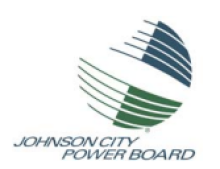
Fast, affordable Internet access for all.

Johnson City Power Board (JCPB) in Tennessee began considering expanded uses for its fiber-optic infrastructure way back in 2009. After several stops and starts, the community is on track again, having just commissioned a Fiber and Wireless to the Premise (FTTP) Feasibility Study.
A Long Road
In 2009, when the municipal utility was installing fiber to substations they reviewed the idea of offering broadband to businesses and residents. Ultimately, they chose to focus on smart-grid development and save possible telecommunications offerings for some time in the future.
This isn’t the first time the community of 63,000 has commissioned a feasibility study. In 2011, community leaders took the results from a study and decided a public-private partnership was the best route. The community is located between Bristol, Virginia, and Chattanooga, Tennessee - both communities with municipal fiber networks that have seen upticks in economic development. Competing for new businesses and retaining the ones they already have could not have been easy while sandwiched between the two communities with high-quality connectivity.
In 2012, Johnson City announced that it would be working with the BVU Authority in Bristol as a partner. Now that the BVU system will likely be sold to a private provider, Johnson City is back to square one, but with considerable experience in its pocket.
Asking For Input
As part if the study, JCPB has launched surveys on their website for residents and businesses; they’re also making the surveys available through the mail. JCPB is asking the community to complete the surveys before the end of June.
From the JCPB survey page:
Over 1,000 communities nationwide have undergone similar evaluation processes and benefited from the information obtained from these types of surveys. Survey results have enabled key decision-makers within these municipalities to make more informed business decisions, which better benefit the entire community. Today, advanced telecommunications services are as critical as electricity was 100 years ago. Time and again, studies have proven that communities who actively embrace technology and plan ahead reap benefits for years to come.
Your participation in this survey is valued and appreciated.
